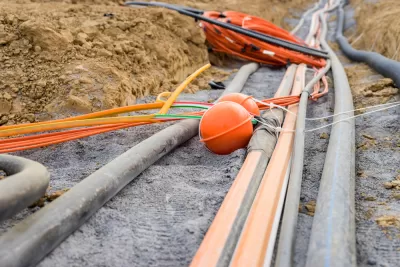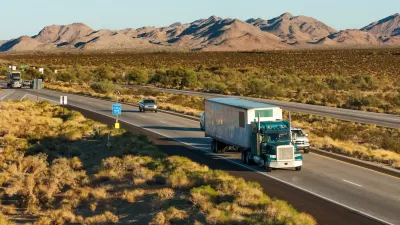Access to high-speed Internet makes a huge difference in day-to-day life. The digital divide between urban and rural communities means some rural communities could be left behind.

In many rural communities, reports Jennifer Levitz, broadband "lags behind in both speed and available connections."
Levitz begins an article explaining the rural digital divide by describing the example of Washington County, Missouri, where customers pay $170 million a month for "satellite internet service too slow to upload photos, much less conduct business." According to Levitz, "only a fraction of Washington County’s 25,000 residents, including Ms. Johnson, have internet service fast enough to stream videos or access the cloud, activities that residents 80 miles away in St. Louis take for granted."
Levitz expands the scope of this examination of infrastructure by writing that poor rural Internet is "both a cause and a system" of the "travails" of small-town America. "About 39% of the U.S. rural population, or 23 million people, lack access to broadband internet service—defined as 'fast' by the Federal Communications Commission—compared with 4% of the urban residents," writes Levitz. There are plenty of examples for how poor Internet service negatively impact equality of life, from schools to 911 dispatch centers to hospitals to the entrepreneurial efforts of private citizens.
The article includes a lot more detail on the difficulties of building-out high-speed internet infrastructure to all the rural communities around the country.
FULL STORY: Rural America Is Stranded in the Dial-Up Age

Maui's Vacation Rental Debate Turns Ugly
Verbal attacks, misinformation campaigns and fistfights plague a high-stakes debate to convert thousands of vacation rentals into long-term housing.

Planetizen Federal Action Tracker
A weekly monitor of how Trump’s orders and actions are impacting planners and planning in America.

In Urban Planning, AI Prompting Could be the New Design Thinking
Creativity has long been key to great urban design. What if we see AI as our new creative partner?

California Creates Housing-Focused Agency
Previously, the state’s housing and homelessness programs fell under a grabbag department that also regulates the alcohol industry, car mechanics, and horse racing.

Chicago’s Ghost Rails
Just beneath the surface of the modern city lie the remnants of its expansive early 20th-century streetcar system.

Baker Creek Pavilion: Blending Nature and Architecture in Knoxville
Knoxville’s urban wilderness planning initiative unveils the "Baker Creek Pavilion" to increase the city's access to green spaces.
Urban Design for Planners 1: Software Tools
This six-course series explores essential urban design concepts using open source software and equips planners with the tools they need to participate fully in the urban design process.
Planning for Universal Design
Learn the tools for implementing Universal Design in planning regulations.
planning NEXT
Appalachian Highlands Housing Partners
Mpact (founded as Rail~Volution)
City of Camden Redevelopment Agency
City of Astoria
City of Portland
City of Laramie





























